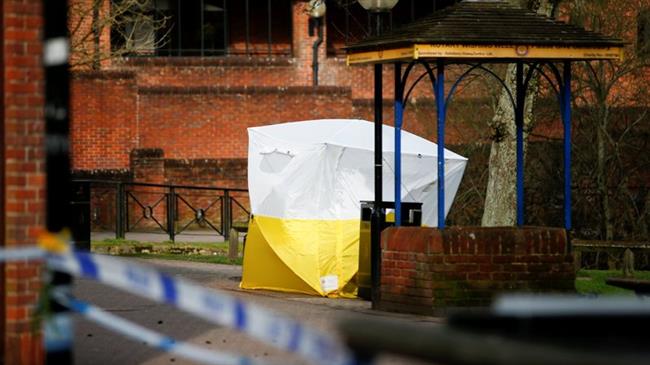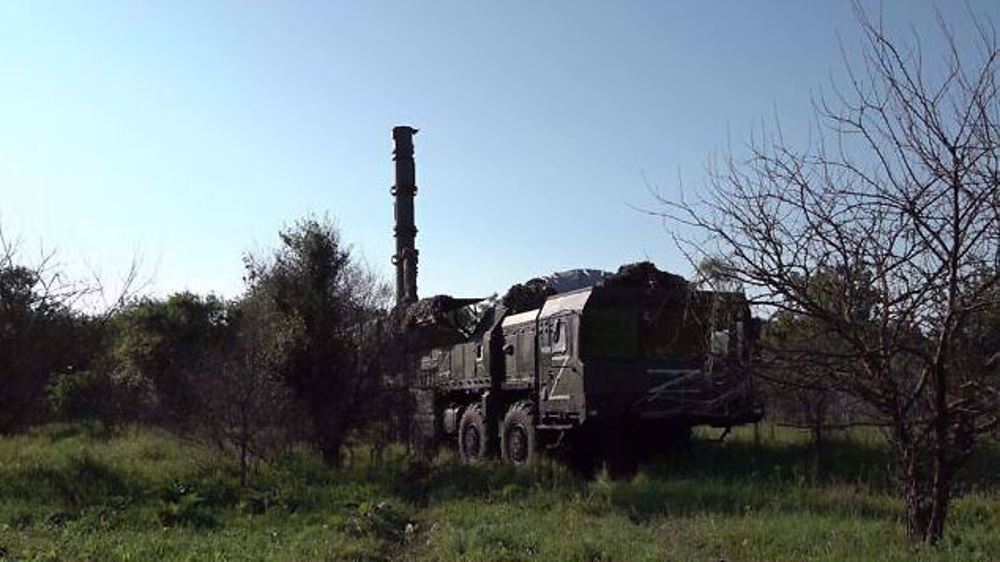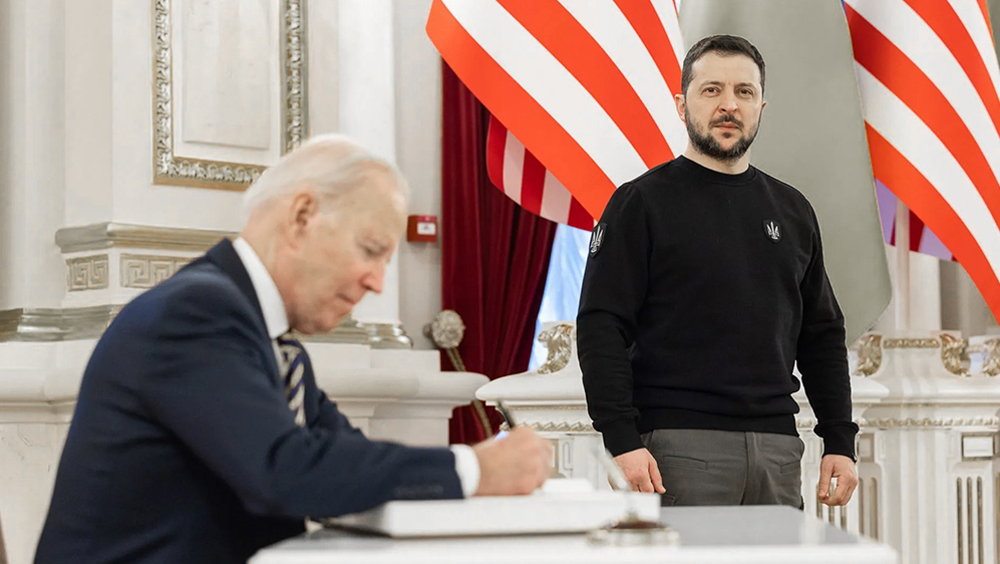UK potential origin of ‘Novichok’ nerve agent: Russia
Russia has once again denied accusations of involvement in the poisoning of former double agent Sergei Skripal in Britain, saying the substance used in the attack could have originated from the countries studying the “Novichok” nerve agent, including the UK, Slovakia, the Czech Republic and Sweden.
“The most likely source of origin of the toxin are the countries which have been carrying out intense research on the substances from the ‘Novichok’ program, approximately since the end of the 1990s until the present time, and this project is not the creation of Russia or the Soviet Union,” Russian Foreign Ministry spokeswoman Maria Zakharova said Saturday.
The US should also “be put under question,” Zakharova said.
The Russian official made the remarks days after British authorities announced that Skripal, 66, and his 33-year-old daughter, Yulia, had been hospitalized since they had been found unconscious on a bench outside a shopping center in the city of Salisbury.
British police attributed the critical illness of the two to a nerve agent developed by the former Soviet Union, while British Prime Minister Theresa May accused Moscow of being responsible.

May said Monday that Novichok, a chemical weapon purportedly developed under a clandestine Soviet program, had been used in the poisoning of the agent and his daughter, demanding that Moscow provide details of the so-called program.the British premier
“How did they come to the conclusion about Russian ‘footprint’ if they didn’t give us those sample? Logically they shouldn’t have this substance. Which samples have they compared with to draw such a conclusion?” Zakharova said.
“Questions arise: then, they should have samples, which they conceal, or it is a lie from start to finish,” she said.
“If the UK prime minister and other British experts give the formula, then it will be clear which countries have been developing these agents,” Zakharova said.
Zakharova’s comments echoed those of Russia’s representative at the Organization for the Prohibition of Chemical Weapons (OPCW), Aleksandr Shulgin, who said the ‘Novichok’ research was taken out of the Soviet Union following its collapse.
According to Shulgin, the US and the UK had developed the nerve agent that could have been used in the poisoning of Skripal, and that Russia has never conducted similar research.
“It is entirely possible that this substance could have been used from their arsenals, from their stocks,” Shulgin said on Friday.
He said the source of the substance used in Salisbury is “concealed in one of the countries where this research continued and achieved certain success.”
Earlier on Saturday, Russian Foreign Ministry said Moscow was expelling 23 British diplomats in response to Britain’s “baseless accusations over the incident in Salisbury on March 4.”
The ministry also said it was halting the activities of the British Council, Britain’s international organization for cultural relations and educational opportunities, across the country.
The move was a response to a plan announced by London to expel 23 Russian diplomats in the wake of the alleged attack.
The UK premier also announced a range of economic and diplomatic measures, including a decision to cancel all high-level bilateral contacts with Moscow.
Skripal was found guilty by a Russian tribunal of selling classified information to the UK’s spy agency MI6 and was imprisoned in Russia in 2006. He was exchanged in a spy swap in 2010.
Britain’s National counter-terrorism police have taken over the investigation on the alleged attack and are treating the case as attempted murder.
Jordan sentences former lawmaker for supporting Palestinian resistance
Basij volunteer forces hold massive drills in southwestern Iran
Israeli war criminals 'not welcome', US city says after ICC ruling
US vetoing of Gaza ceasefire resolution ‘disgraceful’: Iran’s UN envoy
VIDEO | IAEA adopts anti-Iran resolution tabled by E3
VIDEO | Iran's president urges Pope to help end Israel's onslaught in Gaza
Iran's senior legal official: ICC arrest warrant for Netanyahu ‘great victory'
Nov. 21: ‘Axis of Resistance’ operations against Israeli occupation











 This makes it easy to access the Press TV website
This makes it easy to access the Press TV website